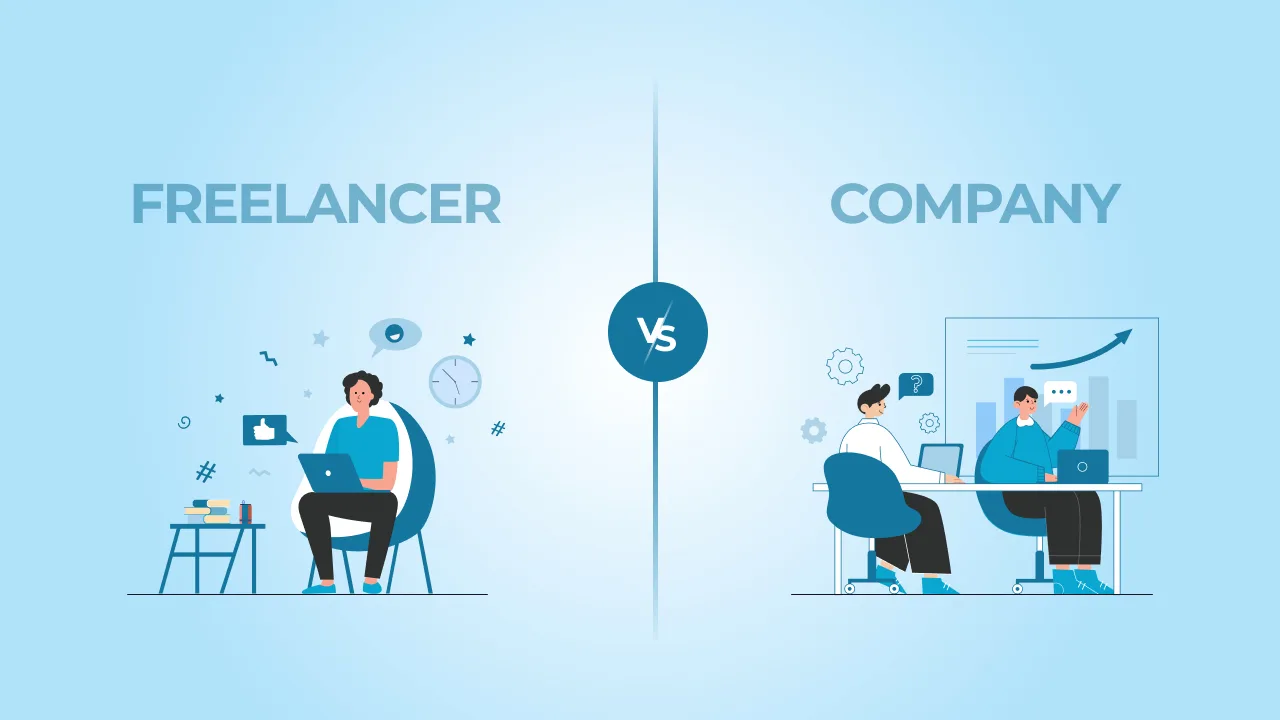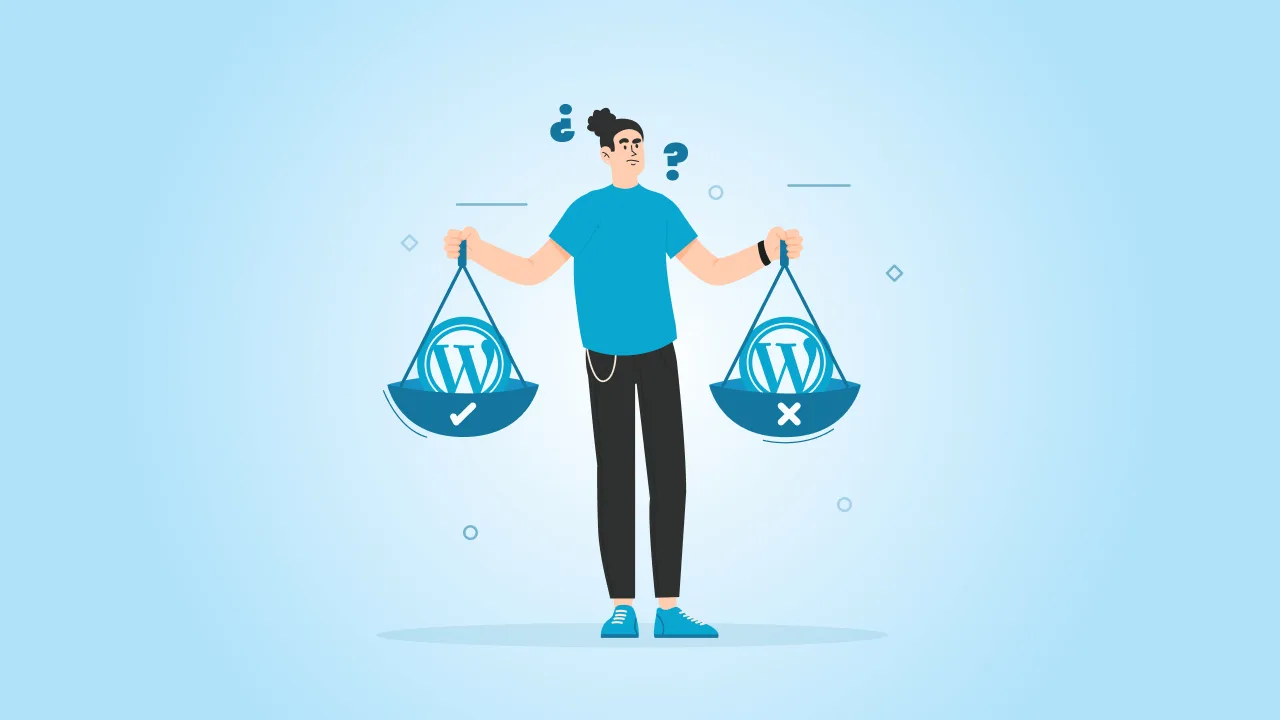Drupal is popular for its flexibility, speed of innovation, and scalability. Although Drupal is a powerful tool with great customizable features and functionalities, it might not be the best content management system (CMS) for everyone.
Finding a better CMS to replace Drupal can be a complicated mission. It has to tick off a wide range of features, like:
- Easy to use
- Have scalability
- Flexible integrations
- Supportive of all your goals, etc
It might put a ton of research work on your shoulder. Don’t worry. To help you find the most suitable Drupal alternatives suitable for your business, we have compiled a list of 16 CMS for you to pick from.
But first, you need to know…
What to Look for in a Drupal Alternative?
Finding the right alternative to Drupal means you have consider the following factors to ensure your new platform can cater to your needs.
If you can answer “Yes” to the following 10 questions, chances are, you will find a good replacement for Drupal. They are fundamentals to what you get on Drupal and determine your site’s attractiveness or its lack.
- Community support: A good platform should allow you to share your work, get feedback, and support.
- Marketing tools Look sy for you to send emails, provide your users with promotions and discounts, and even be able to integrate with Facebook and Twitter.These features are meant to help your site expand as you get new visitors while enabling those who are your current fans to always come back for more.
- Customizable content – Choose a platform that will enable you to display content of different kinds in unique ways.
- Taxonomy – Choose a platform that allows you to classify your work as it makes it possible for your site’s visitors to find what they are looking for without a problem.
- SEO friendly – Choose a platform that is SEO friendly for that is how people will get to know that you have new content.
- Social media connection – Choose a platform that can allow you to link with social media, as that will allow the people who don’t have the time to visit your site to get the content from other people sharing.
- Multiple languages – Choose a platform that is suitable for people from all over the world.
- Attractive themes – Choose a platform that provides themes that can make your site look so professional.
- Flexibility and Scalability: Your CMS platform should be able to support a lot of content and traffic. Choose a platform that will offer you a complete package and can also allow you to use it as an API.
- Reliability and Community – Finally, choose a platform that has been around for some time.
-
WordPress:

Features:
- Extensive Plugins: It offers a wide range of plugins and integrations for improved functionality and customization.
- SEO-Friendly: You’ll get SEO-friendly design that helps ensure your site ranks well in search engine results.
- Community Support: It’s supported by an active community, providing a wealth of resources, support, and advice for users.
Pricing: WordPress offers a free version with the option to purchase premium plugins, themes, and hosting services for additional costs. The overall cost can vary based on the level of customization and scaling required for your business.
Best For: All types of businesses looking for a flexible, user-friendly website builder that can accommodate a wide range of needs, from simple blogs to complex e-commerce sites.
-
Joomla:

Joomla is another popular CMS, well known as a flexible alternative to Drupal, offering a variety of features for different website building needs.
Features:
- SEO-Friendly: Joomla comes with built-in tools to help your website show up higher in search engine results, making it easier for more people to find your content without needing extra plugins.
- Supports Multiple Languages: You can create and manage content in several languages right from the start with Joomla, which is great for projects or audiences from different parts of the world.
- Lots of Extensions: With Joomla, you have access to a huge range of third-party extensions, so you can add specific features or improve your site’s functionality without much hassle.
Pricing: Using Joomla is free, but keep in mind that hosting, getting a domain name, and some third-party extensions or templates might have some fees.
Best For: Joomla is well-suited for users looking for an accessible, yet powerful, platform that supports multilingual websites and robust SEO out of the box. It’s ideal for small to medium-sized enterprises, educational institutions, and non-profits that require flexibility and scalability in their web presence.
-
Sitecore

Features:
- Advanced personalization and marketing automation capabilities.
- Scalable content management that grows with your business.
- Integrates with a wide range of digital marketing tools.
- Strong security features for enterprise-level requirements.
Pricing: Custom pricing based on the specific needs and scale of your project.
Best For: Large organizations and enterprises looking for a comprehensive digital experience platform that offers extensive customization and integration options.
-
Contentful

Features:
- API-first content management system, making it flexible for developers.
- Supports multi-channel publishing.
- Offers robust content modeling and management tools.
- Integrates with numerous other tools and platforms.
Pricing: Offers a free tier for basic use; paid plans provide more features and higher limits.
Best For Teams looking for a highly customizable, developer-friendly platform to manage and deliver content across multiple channels.
-
Umbraco

Features:
- Open-source CMS with a strong community.
- Flexible content management for customized website design.
- Offers good scalability for growing websites.
- Friendly back-office interface for editors and content creators.
Pricing: Free to use for the core system; additional costs for optional premium features and support.
Best For: Businesses and Drupal developers who want a customizable, open-source CMS with a supportive community.
-
Webflow

Features:
- Visual design and website building tools that require no coding.
- Integrated CMS for easy content management.
- Allows for custom interactions and animations.
- Responsive design capabilities for mobile and other devices.
Pricing: A free tier is available for all the users. However, paid plans offer more features, hosting options, and account support.
Best For: Designers and small to medium businesses seeking a powerful yet accessible platform for Webflow website development to design, build, and launch responsive websites without deep coding knowledge.
-
HubSpot CMS

Features:
- It seamlessly integrates Customer Relationship Management (CRM) to personalize visitor experiences.
- It comes with a broad selection of themes to customize site appearance.
- It offers content assistant tools for optimizing and managing content efficiently.
Pricing: You’ll get free tier. HubSpot also offers premium plans starting from a basic package to more advanced enterprise solutions. The price varies on features you need and how you want to scale your site.
Best For: Businesses looking for an all-in-one solution that combines website management with powerful marketing, sales, and service tools to foster growth.
-
Backdrop

Features:
- Backdrop is designed as an easy-to-use, cost-effective alternative for small to medium-sized organizations.
- It provides a straightforward user interface and configuration. Great for non-techies.
- It focuses on delivering comprehensive web content management solutions..
Pricing: Backdrop CMS is free to use, as it’s an open-source platform.
Best For: Organizations and individuals that are looking for a straightforward and budget-friendly CMS. This platform would be a good pick for those with simpler website needs or coming from a Drupal background.
-
TYPO3

Features:
- It’s highly flexible and scalable CMS, offering vast range of customization options.
- It also supports multilingual content management for international users.
- It comes with enterprise-level features and vigorous security framework.
Pricing: TYPO3 is also an open-source platform making it free for everyone to use. But its cost your charges for hosting, custom development, and professional support services.
Best For: Enterprises and large organizations that needs a powerful, scalable CMS with the flexibility to meet your complex needs and workflows.
-
Kentico

Features:
- Comprehensive content management system with integrated marketing tools and e-commerce solutions.
- Offers personalization, A/B testing, and marketing automation.
- Provides a wide range of out-of-the-box functionalities for rapid development.
Pricing: Provides a licensing model; pricing varies based on the edition and specific requirements for features and scale.
Best For: Medium to large businesses looking for an all-encompassing platform to manage web content, e-commerce, and marketing activities within a single environment.
-
Shopify

Features:
- It’s an user-friendly platform created for setting up an online store quickly.
- Shopify offers a wide range of themes and customization options to customize the look of your store as per your desire.
- It comes with built-in tools for sales, marketing, and analytics to help grow your business.
- It also supports a marketplace of apps to extend your site’s functionality.
Pricing: The price of Shopify starts from a basic plan for small ecommerce businesses, with more advanced plans available for growing and large businesses.
Best For: Shopify is great for ecommerce businesses of all sizes looking for a comprehensive and easy-to-use e-commerce platform to start and grow their online sales.
-
Magento (Adobe Commerce)

Features:
- It’s a highly customizable and scalable e-commerce CMS suitable for Medium-level businesses and enterprises.
- It offers a wide range of features for complex online stores, including multi-store management, mobile commerce, and global selling.
- Magento comes with a strong community support and a extensive marketplace of extensions and themes.
Pricing: Open-source version is available for everyone. However, the enterprise version, Adobe Commerce asks for custom pricing based on business needs and scale.
Best For: Medium to large businesses and enterprises that needs a scalable e-commerce solution with the flexibility to create a tailored online shopping experience.
-
Symphony CMS

Features:
- It’s an XSLT-powered open-source content management system, offering flexibility and power for developers.
- It uses XML and XSLT for templating to give developers precise control over content presentation.
- It focuses on providing developers with the tools to create custom data structures, workflows, and user experiences.
Pricing: Symphony CMS is free to use, as it is an open-source platform.
Best For: It’s best suited for developers and web professionals looking for a customizable and developer-centric CMS that comes with deep control over content structure and presentation, especially for users comfortable with XSLT and XML.
-
Sanity

Features:
- A fully customizable, headless CMS with a real-time editing interface.
- Offers a structured content approach that can be delivered across any channel.
- Features a powerful and extensible set of APIs for building efficient workflows.
- Supports collaborative editing and content management in real time.
Pricing: Has a free tier with basic features; paid plans offer more storage, higher usage limits, and additional features.
Best For: Businesses and developers looking for a flexible, scalable CMS to manage and deliver content across multiple platforms and devices, with a focus on real-time collaboration.
-
Strapi

Features:
- An open-source, headless CMS designed for developers to create, manage, and distribute content easily.
- Offers full RESTful or GraphQL API support for flexibility in content delivery.
- Highly customizable and extendable through plugins.
- Supports role-based access control for managing user permissions effectively.
Pricing: Free for the community edition; enterprise pricing is available for advanced features and support.
Best For: Developers and teams seeking a customizable and developer-friendly headless CMS with a strong focus on API-driven content management and distribution.
-
Adobe Experience Manager (AEM)

Features:
- A comprehensive content management solution for building websites, mobile apps, and forms.
- Integrates digital asset management (DAM) and powerful content management capabilities.
- Offers personalized, content-led experiences powered by Adobe’s AI and machine learning technology, Adobe Sensei.
- Scalable to meet the needs of large enterprises and organizations.
Pricing: Custom pricing based on the specific needs of the organization, considering the scale and scope of the deployment.
Best For: Large enterprises and organizations that require an all-encompassing digital experience management solution to manage vast amounts of content across multiple channels, with a need for personalization and integration with other Adobe products.
Which Drupal Alternative Should I Choose?
By this far, you’ve probably decided which platform will work best for you. However, if you’re still confused about the right one to pick, here’s a quick recommendation for you:
- If you’d like more flexibility and creative control over your website, choose WordPress.
- For delivering impeccable shopping experiences at scale, consider going for Shopify.
- If your goal is to deepen your design skills while sticking with code-free tools, look no further than WebFlow.





